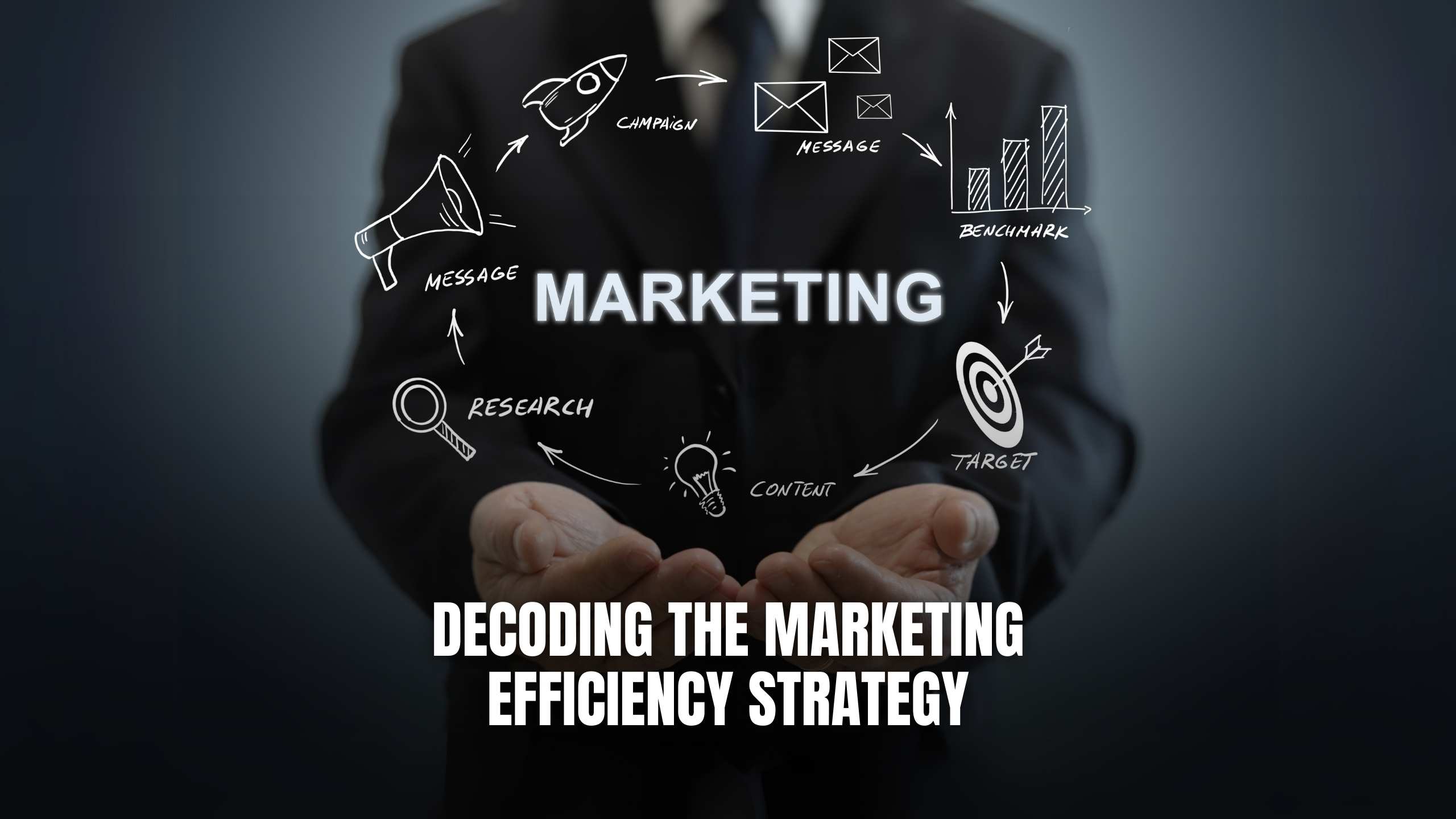Decoding the Marketing Efficiency Strategy
- Conversational Marketing Software SEO Software Affiliate Marketing Software Marketing Tools


Decoding the Marketing Efficiency Strategy
In the ever-evolving landscape of digital marketing, mastering the art of efficiency is key to staying ahead. This blog aims to unravel the intricacies of the Marketing Efficiency Strategy, exploring its components, applications, and the transformative impact it can have on businesses striving for success.
1. Data-Driven Decision Making
At the core of the Marketing Efficiency Strategy lies the power of data-driven decision-making. Utilizing platforms like Google Analytics, businesses can gain deep insights into user behavior, preferences, and engagement metrics. This not only refines marketing strategies but also enables a targeted approach, ensuring resources are allocated where they yield the maximum impact.
Embracing data-driven decisions allows businesses not just to understand user behavior but also to predict trends and proactively adjust their marketing strategies. This agility in decision-making becomes a competitive advantage in the fast-paced digital landscape, where adaptability often determines success.
2. Marketing Automation
Automation is a linchpin in achieving marketing efficiency. HubSpot exemplifies this by offering a comprehensive suite of marketing automation tools. From email campaigns to lead nurturing, automation reduces manual efforts, enhances precision, and ensures that marketing workflows are streamlined for optimal effectiveness.
With marketing automation, businesses can create personalized customer journeys that adapt based on user interactions. This not only saves time but also ensures that the right message reaches the right audience at the most opportune moments, significantly increasing the chances of conversion.
3. Customer Relationship Management (CRM)
Effective customer relationship management is a cornerstone of marketing success. Salesforce provides a robust CRM platform that not only organizes customer data but also enables personalized communication. The ability to tailor marketing messages based on individual preferences fosters stronger connections and increases the likelihood of conversion.
Furthermore, a CRM system serves as a centralized hub for customer information, facilitating collaboration across teams. This interconnectedness ensures a unified approach to customer interactions, fostering a seamless and personalized experience throughout the customer journey.
4. Social Media Management
In the era of social media dominance, a strategic approach is essential. Hootsuite empowers businesses to manage their social media presence efficiently. By scheduling posts, monitoring engagements, and analyzing performance, this tool ensures that social media efforts are aligned with broader marketing goals, maximizing impact.
Additionally, social media management tools like Hootsuite enable businesses to stay on top of industry trends and conversations. This real-time awareness allows for agile adjustments to marketing strategies, ensuring brands remain relevant and responsive in the dynamic social landscape.
5. Content Marketing Platforms
Content remains a driving force in digital marketing. Platforms like CoSchedule facilitate efficient content planning, creation, and distribution. By centralizing content-related tasks, businesses can maintain consistency, amplify their brand voice, and deliver value to their audience, thus enhancing overall marketing efficiency.
Moreover, content marketing platforms provide analytics that goes beyond mere views. Understanding how audiences engage with content informs future strategies, allowing businesses to refine their approach and continually deliver content that resonates with their target audience.
Certainly! Here are the recommended SaaS products added before the conclusion:
Recommended SaaS Products:
- Google Analytics: Unlock deep insights into user behavior and engagement metrics to refine your marketing strategies with precision.
- HubSpot: Streamline your marketing workflows, from email campaigns to lead nurturing, and drive effectiveness with HubSpot’s comprehensive suite of automation tools.
- Salesforce: Enhance personalization and foster stronger customer connections by leveraging Salesforce’s robust CRM platform to organize customer data and tailor marketing messages.
- Hootsuite: Strategically manage your social media presence, monitor engagements, and analyze performance to maximize impact and stay relevant in the dynamic social landscape.
- CoSchedule: Centralize content planning, creation, and distribution with CoSchedule for consistent brand voice and efficient value delivery to your audience.
Conclusion
In conclusion, the Marketing Efficiency Strategy is not a one-size-fits-all approach but a dynamic integration of data, automation, customer relationships, social media, and content marketing. As businesses navigate the digital landscape, adopting and adapting these strategies can lead to more impactful, streamlined, and efficient marketing efforts.
Revolutionize Your Marketing with Subscribed.fyi!
Ready to revolutionize your marketing approach? Subscribed.fyi provides exclusive deals on essential SaaS tools. Sign up for free to unlock secret deals and access savings on Google Analytics, HubSpot, Salesforce, Hootsuite, CoSchedule, and other tools. Elevate your marketing efficiency, optimize workflows, and achieve unparalleled success with Subscribed.fyi.
Relevant Links:





